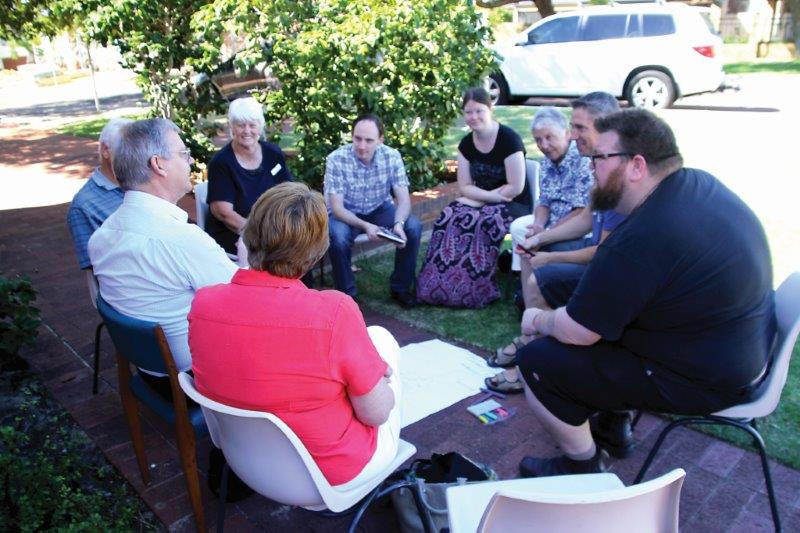“We have a strong focus on the community.”
“We do well regarding the worship on a Sunday morning.” – Rev Dr David Kriel, mission planner, Uniting Church in WA.
These are the strengths of the Uniting Church in WA which came out of the Listening Workshop, held in April. There was a buzz around the room as 80 participants who are associated with the Uniting Church in WA participated in an informal discussion and feedback session on the future of the church. After analysing strengths and weaknesses, David found that the group felt these strengths reflect the core purpose of the church: worship, witness and service, as outlined in the Basis of Union.
He added that in recent years our churches have been becoming more open to change.
“People say, what’s clear from the past few years is that more and more congregations are prepared to try new things,” David said. “We need to stimulate that kind of thinking. What new can we do around our worship?”
While in the business world people tend to focus on their strengths and what they’re good at, leaving behind the things they are not. David said that in the church there are some things that are just not possible to ignore – whether we’re good at them or not. One of them is evangelism, or sharing our faith with others. The other is around communication within the church.
“We’re not good at sharing our faith,” David said. “One to one in everyday lives, people don’t know how to do it. Underlying that is our understanding of our discipleship.”
For some tips on how to share your faith, click here.
As the church makes a transition from hard copy communication to electronic, David said there could be an issue of how information is actually getting to where it’s needed. But, he added, communication is not just one way – it takes the whole church to communicate effectively. A need that was noted as a concern for the church is the education of lay people.
“I still think there’s a growing need for clergy, but what was heard from the groups is that there’s a need for lay people,” David said. “How can we identify leadership among the lay people so that people can use their gifts of worship, witness and service?”
The group also looked at some of the outside influences that will be affecting the church into the future. David said that people are very aware of how Australia’s political scene, and changes in that scene, can influence the church.
Technology changes are one such factor.
“People realise we have to tap into what’s out there. Strategically we have to take these ongoing changes as we think about our future,” he said.
David said he thought the church will have some challenging times as we think about how to use this information. The next step is to analyse all the data and create four scenarios which could be a possible future for the church, so that strategies for each scenario can be thought of and eventually implemented.
Heather Dowling
